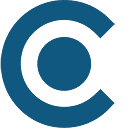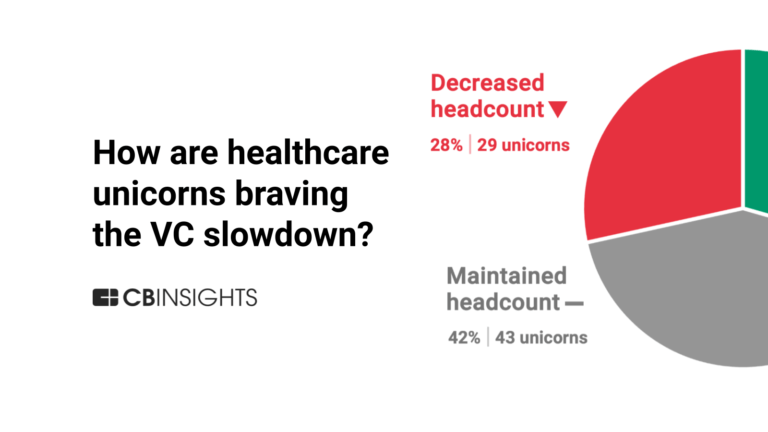
Incredible Health
Founded Year
2017Stage
Series B | AliveTotal Raised
$98.08MValuation
$0000Last Raised
$80M | 3 yrs agoMosaic Score The Mosaic Score is an algorithm that measures the overall financial health and market potential of private companies.
-18 points in the past 30 days
About Incredible Health
Incredible Health develops a healthcare career marketplace specializing in permanent nurse staffing using artificial intelligence (AI)-enabled technology. The company offers a platform where nurses can find permanent roles, manage their careers, and access free continuing education resources. Hospitals and health systems utilize Incredible Health to streamline their hiring processes, reducing the time to hire and connecting with a pool of qualified nursing professionals. Incredible Health was formerly known as Lift League. It was founded in 2017 and is based in San Francisco, California.
Loading...
ESPs containing Incredible Health
The ESP matrix leverages data and analyst insight to identify and rank leading companies in a given technology landscape.
The nurse staffing software market offers a comprehensive solution for healthcare organizations to effectively manage their nursing staff. This software utilizes advanced technologies to automate and streamline the process of nurse scheduling, shift management, and resource allocation. With nurse staffing software, healthcare providers can ensure adequate nurse coverage, improve patient safety, an…
Incredible Health named as Leader among 15 other companies, including Nomad, Nursa, and ShiftKey.
Loading...
Research containing Incredible Health
Get data-driven expert analysis from the CB Insights Intelligence Unit.
CB Insights Intelligence Analysts have mentioned Incredible Health in 1 CB Insights research brief, most recently on Jul 14, 2023.
Expert Collections containing Incredible Health
Expert Collections are analyst-curated lists that highlight the companies you need to know in the most important technology spaces.
Incredible Health is included in 4 Expert Collections, including HR Tech.
HR Tech
6,137 items
The HR tech collection includes software vendors that enable companies to develop, hire, manage, and pay their workforces. Focus areas include benefits, compensation, engagement, EORs & PEOs, HRIS & HRMS, learning & development, payroll, talent acquisition, and talent management.
Unicorns- Billion Dollar Startups
1,309 items
Digital Health 50
150 items
The winners of the second annual CB Insights Digital Health 150.
Digital Health
12,122 items
The digital health collection includes vendors developing software, platforms, sensor & robotic hardware, health data infrastructure, and tech-enabled services in healthcare. The list excludes pureplay pharma/biopharma, sequencing instruments, gene editing, and assistive tech.
Latest Incredible Health News
Nov 4, 2025
Much of the health-tech industry remains focused on large, complex systems that demand extensive integration and prolonged implementation. Increasingly, however, a quieter form of ingenuity is taking shape. Across hospitals and clinics, a growing number of physicians are embracing micro-innovation —the art of solving finite problems with precise, practical solutions Here, I speak with two physicians— Dr. Kevin Spencer and Dr. Manju Chacko Dawkins —whose micro-innovations are reshaping everyday clinical care where it's needed most: at the bedside. Each demonstrates that transformative ideas in medicine need not emerge from corporate boardrooms or venture-backed startups, but from individual clinicians who confront inefficiencies firsthand. When Engineering Meeds Medicine For Dr. Kevin Spencer, an emergency medicine physician in Canada and the CEO of Ring Rescue , innovation began on a late-night shift with a patient's swollen finger and a stuck ring, a time-sensitive condition that could lead to irreversible finger injury. “Every Emergency doctor knows this scenario,” Spencer told me. “The patient's finger is swelling and suddenly you're reaching for pliers or a dremel tool to cut off a ring. It's archaic--and potentially unsafe.” Spencer, who holds an engineering background, realized that medicine had normalized a hardware-store approach to a medical problem. “We wouldn't use power tools on a patient for anything else. Yet this was still standard.” Together with his cofounders, also engineers, Spencer began prototyping a safer alternative in his basement in 2018. What started as a side project became a company that employs 17 people, operates its own compliant manufacturing facility, and distributes devices across top U.S. hospitals. From Basement Prototype to Market Launch Ring Rescue's first product—a medical-grade compression device—helps safely remove rings by reducing finger swelling instead of cutting. Their second device is a medical-grade precision-powered ring cutter that replaces the crude mechanical cutters that hospitals had used for decades. Spencer shared that his company's progress wasn't driven by luck, but by methodically navigating the medical device ecosystem—a path many clinicians underestimate or are unfamiliar with. “Even if your product solves a real problem, it's not enough to be clever,” he said. “Healthcare is a regulated industry. You need to know which path you're on from day one.” For Ring Rescue, that meant understanding FDA classifications early, since medical devices are subject to different regulations than other consumer products. Spencer's devices were reviewed under 513(g) provisions—showing substantial equivalence to existing categories like compression devices and ring cutters—allowing for a Class I medical device designation, the lowest regulatory bar but still requiring formal registration and quality controls. Spencer emphasizes that compliance with regulation isn't optional; it's the foundation of credibility. “If a hospital's biomedical engineer can't verify that your device meets electrical and safety standards, it doesn't matter how much clinicians love it—you won't get through the door.” The company also conducted safety research to determine compression times and pressures, drawing from blood pressure and surgical tourniquet literature. “We wanted the data to be bulletproof,” he said. “If you're asking clinicians to change behavior, you need science and safety on your side.” Selling Product Into a Healthcare System Even after certification, Spencer discovered that selling to hospitals was another challenge entirely. “In healthcare, the person who wants your product isn't always the person who buys it,” he said. A company has to buy the clinician who loves it, the administrator who approves it, and the biomedical engineer who certifies it. "Each has a different reason to say yes or no,” he shares. Ring Rescue now has over 1,900 units in circulation and 45,000 single-use cutting discs sold since 2022. About 80% of their clients are major U.S. hospitals, and adoption continues to grow. “These small innovations don't demand a billion-dollar budget,” Spencer said. “It demands empathy for your own pain points—and persistence.” Tackling Needle Pain: Thimble's Micro-Innovation That same empathy drives Dr. Manju Chacko Dawkins, dermatologist and founder of Thimble , a company reimagining needle care. Her idea was sparked when she took her young daughter for her first vaccinations. “I'd performed hundreds of injections,” Dawkins said, “but watching my child's anxiety changed how I thought about needle pain. It wasn't just a momentary issue—it was a barrier to care.” Research backs her up: more than 63% of people globally experience some form of needle fear , and many avoid essential healthcare as a result. Patients make skip standard clinical care, like lab draws or medication delivery, out of fear of needles. Thimble's innovation is straightforward yet powerful. The company created a two-part, over-the-counter platform: Prepare, a topical 4% lidocaine gel that numbs the skin before injections, and Recover, a turmeric- and arnica-infused patch that soothes soreness and swelling afterward. Both are safe for all ages and designed to replace the traditional adhesive bandage after blood draws or vaccinations. By simplifying needle pain management, Thimble bridges a gap between clinical empathy and consumer usability. Its model aligns with a key truth of micro-innovation: effective medical ideas don't always require a prescription. A Broader Movement of Small-Scale Disruption Ring Rescue and Thimble are part of a larger trend of physician-led startups addressing specific yet widespread problems. NasaClip, founded by Dr. Elizabeth Clayborne, is a device designed by an emergency medicine physician treats nosebleeds. Incredible Health, founded by Dr. Iman Abuzeid helps streamline the hiring process for healthcare workers. AliveCor, founded by Dr. David E. Albert, is a portable 12-lead EKG device . In an era obsessed with scale and market share, micro-innovation offers a different kind of opportunity for clinicians — one rooted in usability, empathy, and the quiet reminder for clinicians to fix the nagging problem in front of you. All of these ventures suggest that healthcare's deepest challenges – burnout, cost, inefficiency – won't be solved with a single clunky breakthrough. They'll be solved by thousands of small, elegant ones. Lessons for Aspiring Healthcare Innovators My conversation with Spencer and Dawkins highlighted three lessons for clinicians hoping to push a healthcare product to market: Validate the pain point before the product. Talk to peers, gather data, and quantify the burden. Know your regulatory path. FDA classification determines your time, cost, and path forward building the business. Design for adoption, not just innovation. The person who tells you they love it, isn't always the person writing the check or approving the quality and safety.
Incredible Health Frequently Asked Questions (FAQ)
When was Incredible Health founded?
Incredible Health was founded in 2017.
Where is Incredible Health's headquarters?
Incredible Health's headquarters is located at 466 8th Street, San Francisco.
What is Incredible Health's latest funding round?
Incredible Health's latest funding round is Series B.
How much did Incredible Health raise?
Incredible Health raised a total of $98.08M.
Who are the investors of Incredible Health?
Investors of Incredible Health include Andreessen Horowitz, Obvious Ventures, Stardust Equity, 444 Capital, Kaiser Permanente and 14 more.
Who are Incredible Health's competitors?
Competitors of Incredible Health include Medplace, Nomad, JobGraze, DirectShifts, connectRN and 7 more.
Loading...
Compare Incredible Health to Competitors

Trusted is a labor marketplace and workforce management platform focused on the healthcare industry. The company connects nurses to job opportunities and facilitates benefits, payroll, onboarding, and compliance, while providing employer-of-record services. The staffing platform helps healthcare facilities manage their nursing workforces and clinical workforce needs with insights and a network of pre-onboarded talent suppliers. It was founded in 2017 and is based in San Francisco, California.

CareRev provides a workforce platform for healthcare staffing and management. The company connects healthcare facilities with per diem clinicians, allowing for self-scheduling and enhancement of internal float pools. It serves hospitals, health systems, outpatient centers, and skilled nursing facilities. It was founded in 2015 and is based in Sacramento, California.

Nomad Health is a healthcare staffing company specializing in travel nurse and allied health job placements. The company provides a digital platform that connects qualified clinicians with temporary staffing opportunities in various healthcare facilities. Nomad Health primarily serves the healthcare sector, offering job listings and support for travel nursing and allied health professionals seeking temporary positions. It was founded in 2015 and is based in New York, New York.

IntelyCare is a healthcare talent platform that connects nursing professionals with job opportunities across various care settings. The company offers employment options including per diem, contract, full-time, and part-time nursing positions, utilizing an AI-based platform for job matching. IntelyCare serves the healthcare staffing sector, catering to nursing professionals seeking flexible career paths. It was founded in 2014 and is based in Quincy, Massachusetts.

Clipboard Health provides healthcare staffing solutions, connecting healthcare facilities with professionals to fill unfilled shifts. The company offers a platform where healthcare workers can find job opportunities with immediate pay, while facilities can access a network of professionals to meet staffing needs. Clipboard Health serves the healthcare sector, including acute care, skilled nursing, assisted living, and more. It was founded in 2016 and is based in Covina, California.
NurseRecruiter is a platform that connects nurses with healthcare employers in the nursing industry. The platform includes a job board where nurses can find various nursing positions, while employers can post jobs and access a database of nursing professionals. NurseRecruiter serves the healthcare sector, aiding the hiring process for both job seekers and employers. It was founded in 1999 and is based in Seattle, Washington.
Loading...

